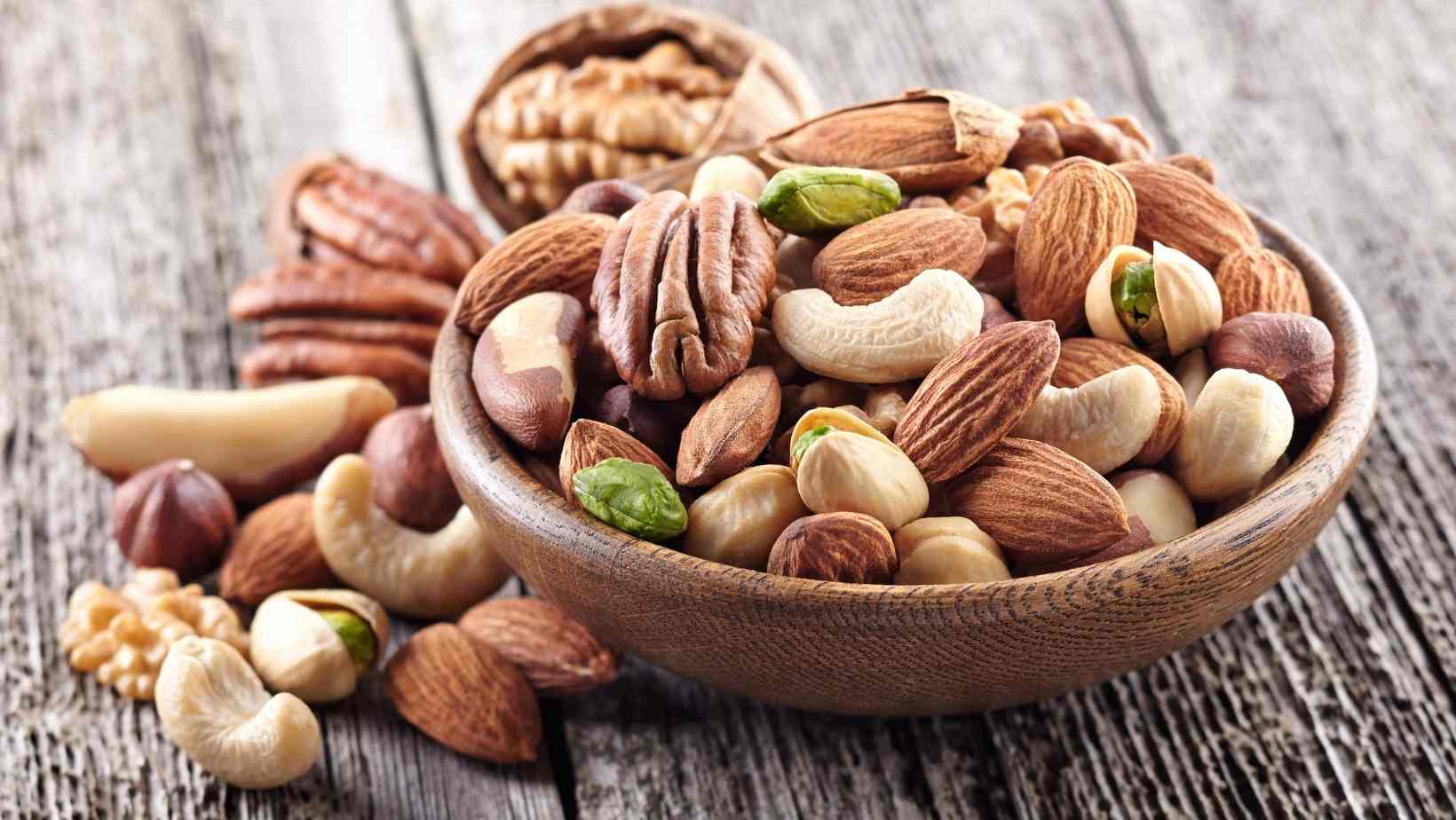What are Nuts?
Tree nuts are edible seed kernels that have a high concentration of nutrients and are enclosed in a hard shell; the most common varieties include almonds, hazelnuts, walnuts, and pistachios, as well as cashews, pine nuts, pecans, macadamias, and Brazil nuts.
Despite the fact that chestnuts (Castanea sativa) are tree nuts, they are distinct from all other common nuts in that they are starchier and have a different nutritional profile than other nuts. Peanuts, while often referred to as a "nut," are really legumes, along with peas and beans.

Advantages in terms of nutrition
A 30g serving of mixed nuts contains the following nutrients:
- 174 kilocalories/722 kilojoules
- 7.1 grammes of protein
- 16g fat (8.1g monounsaturated fat
- 3.5g polyunsaturated fat)
- 15g protein
- carbs (3.5 g)
- 1.9 g of fibre
- 28 milligrammes of calcium
- 67 milligrammes of magnesium
Various nuts have different nutritional profiles, with some nuts being higher in certain nutrients than others — for example, Brazil nuts are particularly high in the mineral selenium – while others are lower in certain elements.
Health Benefits Of Nuts
1. It is high in antioxidants that protect the body
Phytochemicals found in nuts, known as polyphenols, have been shown to have a protective impact on the body, mostly by aiding in the neutralisation of unstable molecules known as free radicals, which have the potential to cause harm.
Based on an investigation into the protective impact of walnuts and almonds, it was shown that these foods' high polyphenol content enhanced antioxidant capacity, which in turn assisted in protecting cells from harm.
2. It promotes bowel health
Nuts, particularly almonds, hazelnuts, pistachios, and pecans, are an excellent source of fibre, with almonds being the most abundant. Several studies have shown that eating a high-fiber diet lowers one's chance of developing a variety of chronic illnesses, including cardiovascular disease and type 2 diabetes. The addition of more fibre to your diet may also help to promote and maintain proper digestive function.
It is also believed that the polyphenols in nuts contribute to the health of our stomachs by aiding the beneficial bacteria that live there. They do this by providing fuel to the bacteria, allowing them to flourish and multiply in quantity. Certain bacteria, in turn, create short-chain fatty acids, which have a variety of beneficial effects on both our gut health and our overall health.
3. It is possible that it will assist with weight control
It is believed that nuts include a variety of minerals and phytochemicals that humans find difficult to digest. As a consequence, we are only able to absorb roughly 5 -15 percent of the calories found in nuts. The reason why a moderate quantity of food, such as a tiny handful of nuts, has an inverse relationship with body mass index is explained by this (BMI).
According to one study, eating nuts, in this example 55g of almonds, as a part of a healthy diet had a low risk of weight gain when included in a balanced diet. Additionally, according to research conducted in 2013, when ingested as a snack, almonds may aid to lessen appetite.

4. It contains a lot of fat
Aside from chestnuts, nuts are considered to be a high-fat meal, with levels ranging from 46 percent in cashews and pistachios to 76 percent in macadamias. It is important to note that the fats chosen are ones that have shown health advantages, such as those that are low in saturated fat and rich in heart-friendly monounsaturated fatty acids and polyunsaturated fatty acids.
A particular note should be made of walnuts since they have the greatest concentration of the short-chain omega-3 fatty acid, alpha-lipoic acid (ALA), of any edible plant, making them a beneficial addition for individuals following a plant-based diet.
5. Promotes heart health
Incorporating nuts into your diet has been linked to enhanced cardiovascular health. Nut consumption helps to maintain the health of artery lining, balances cholesterol, and decreases the buildup of deposits known as plaque, while also decreasing the risk of blood clots, according to the Centers for Disease Control and Prevention.
There are numerous reasons why nuts are beneficial for heart health, including their beneficial fat profile, which is predominantly mono and polyunsaturated, their fibre content, the presence of phytosterols, and the contributions of proteins such as l-arginine, which help relax blood vessels and lower blood pressure.
Is it safe to eat nuts for everyone?
Even though tree nuts are considered a healthy meal by many, they are also one of the eight most frequent food allergens, and as a consequence, they may induce allergic responses, including severe anaphylaxis in some cases. Cross-contamination is a particular source of worry for those who have nut allergies, and they must exercise extreme care while dining out. Whole nuts may be a choking hazard, particularly for children under the age of five.




